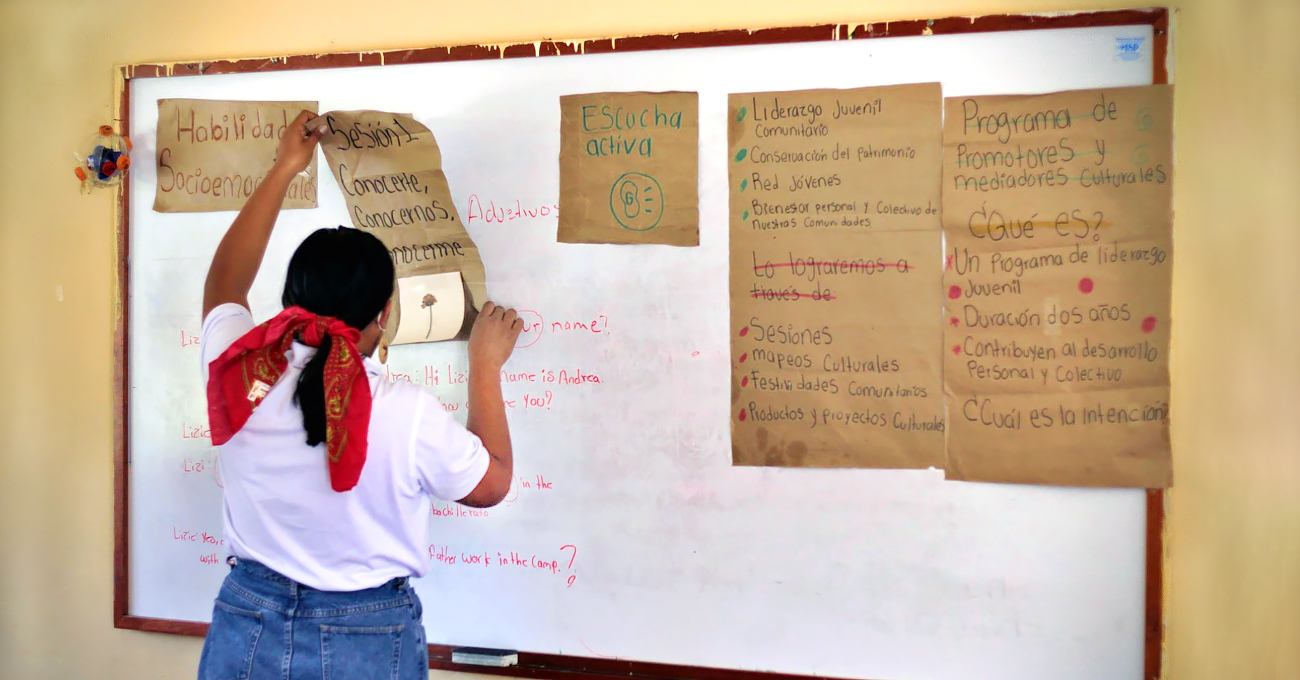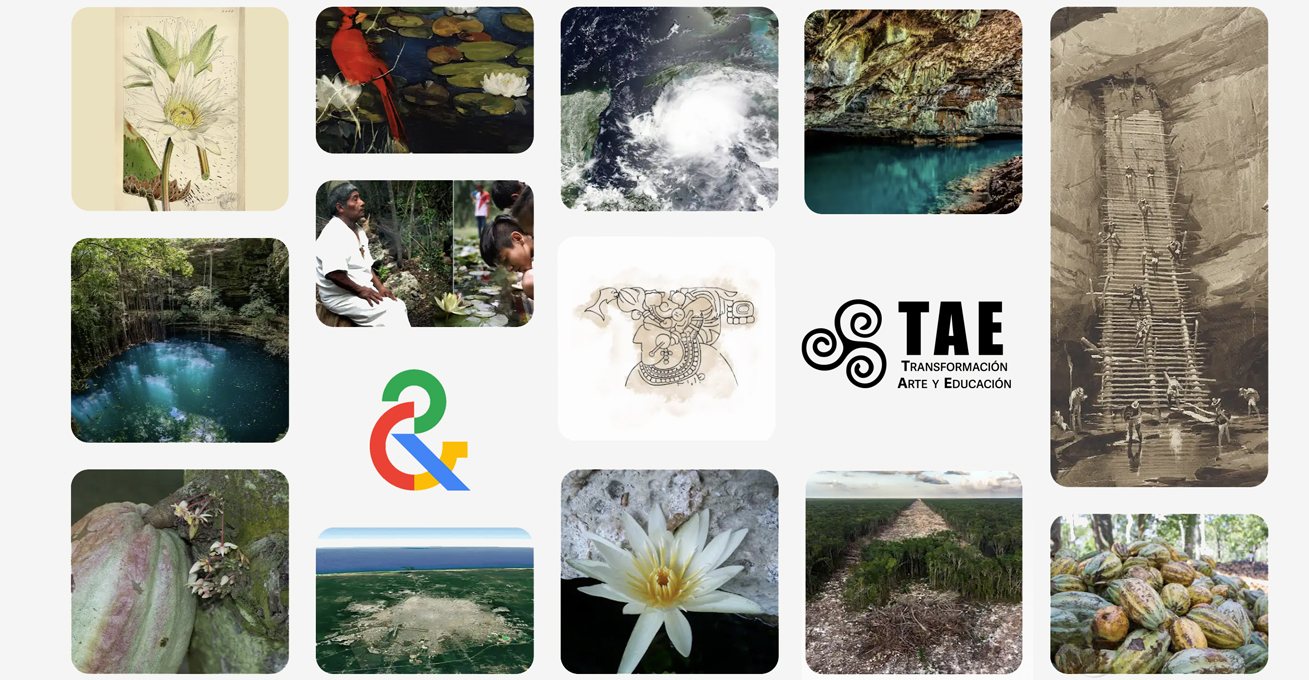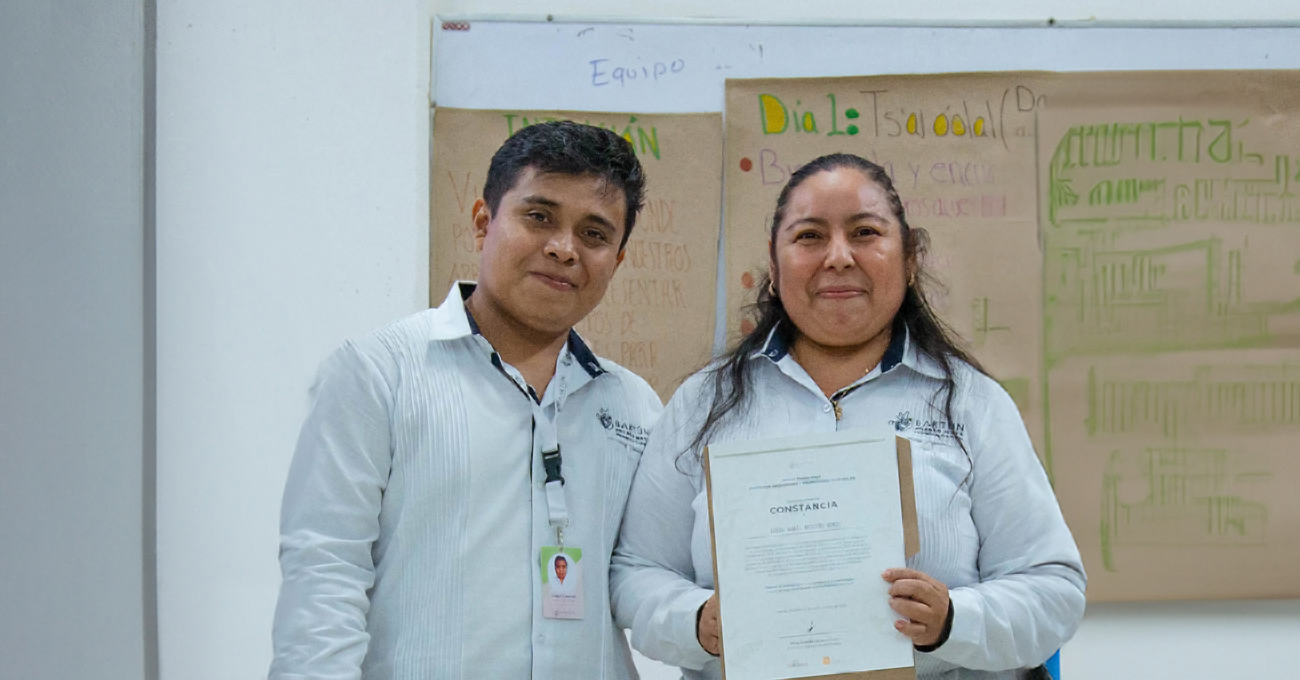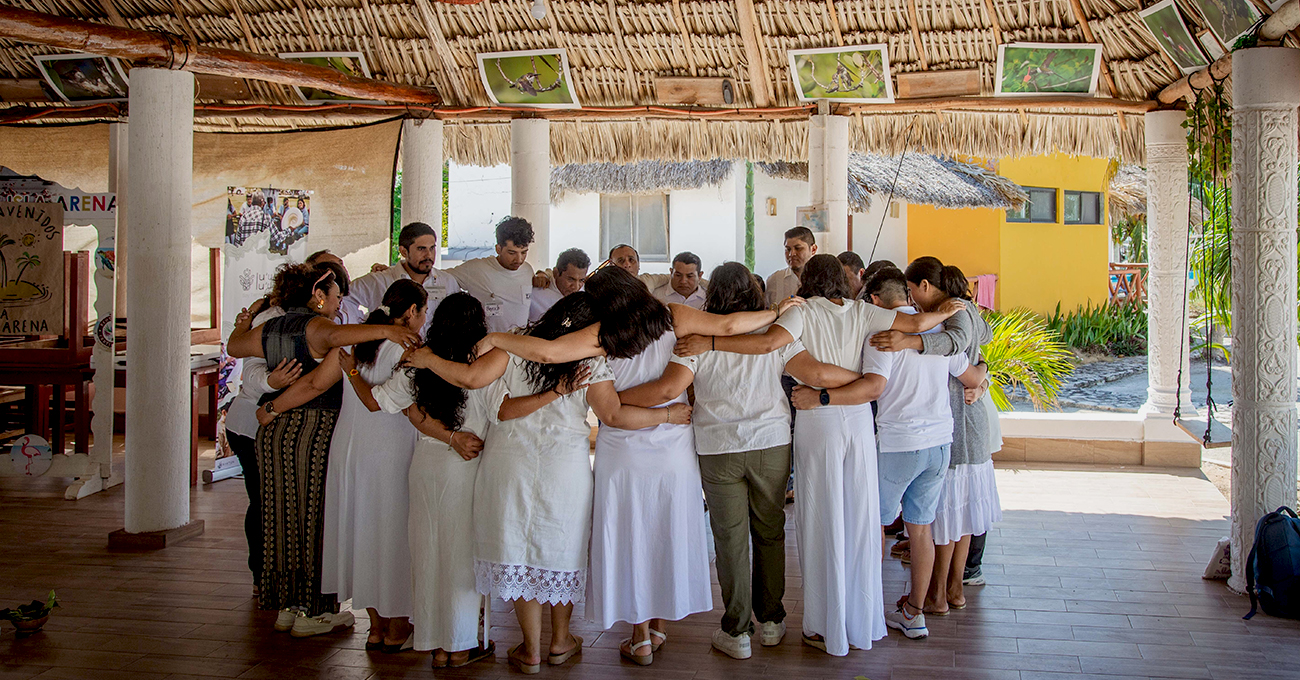
As our intention to nurture skills and competencies for life and work of the participants who graduate from our programs, mainly university youth and those with learning facilitation roles in community organizations, we offer all graduates the opportunity to obtain national certification as group training instructors.
The SEP endorses this certification through the EC0217.01 Competency Standard for the "Delivery of human capital training courses in person in groups", belonging to the Sistema Nacional de Competencias del Consejo Nacional de Normalización y Certificación de Competencias Laborales (CONOCER). This process was carried out hand in hand with a certifying entity: Fundación EDUCA México, A.C., who accompanied the young people in the process of validating their training as Cultural Mediators to strengthen their professional profile and improve their opportunities and job prospects.
To obtain a CONOCER certification, it is necessary for candidates to present evidence that they have the knowledge, skills and abilities necessary to fulfill a function at a high level of performance, in accordance with what is defined in a competency standard. In this case, the primary purpose was for the young participants to validate their knowledge about pedagogical mediation and cultural mediation.
Benefits of obtaining a certification
- Facilitate successful incorporation into the labour market.
- Increase employability security.
- Improve job and economic opportunities.
- Strengthen growth and personal and professional motivation.
- Increase labour competitiveness.
- Encourage continuous training.
- Nurture young people's sense of agency and capabilities, increasing their security and self-confidence to carry out any task related to the work and social sphere.
How was the process?
We established the alliance with Fundación EDUCA México, A.C. as the certifying entity of the EC0217.01 competence. EDUCA began the certification process, which consists of two phases: 1) general competency training and 2) evaluation. The first phase involved theoretical training on an online platform for participants, which was complemented by a series of implementation activities evaluated and provided feedback by the tutor designated by EDUCA. The second phase consisted of the knowledge evaluation, in which each participant adjusted their planning based on the input received and presented the documentation required for the certification process. In addition, each participant recorded a session in front of a group to put their acquired knowledge and skills into practice
In order to ensure that all participants could meet this requirement, Baktún Pueblo Maya accompanied the participants in monitoring and recording to document the facilitators' sessions. To complete the certification process, participants took a knowledge test that allowed them to theoretically and conceptually validate their learning.
The certified participants
27 Cultural Mediators and 13 Lu'umen Lu'umo'on graduate trainers obtained their official certification. To celebrate this milestone achieved by the Cultural Mediators, a ceremony was held at the Intercultural Maya University of Quintana Roo. At this event, Dr Margarita de Abril Navarro Favela, Head of the Department of Sustainable Development of the UIMQROO; Yuliana Margarita Santos Salgado, Head of the university's planning; and Susana Cavazos Lazo, Director of Baktún Pueblo Maya, were notable attendees.
For Lu'umen Lu'umo'on certified trainers, an event will be held next month to deliver certificates and strengthen the network of graduates.
Certifications have a positive professional and personal impact since they validate individual knowledge, skills, abilities, and behaviours, which define people's competence to perform in their working lives. This recognition provides young people with a space to strengthen their professional network and reaffirm their commitment to promoting and preserving cultural diversity.



